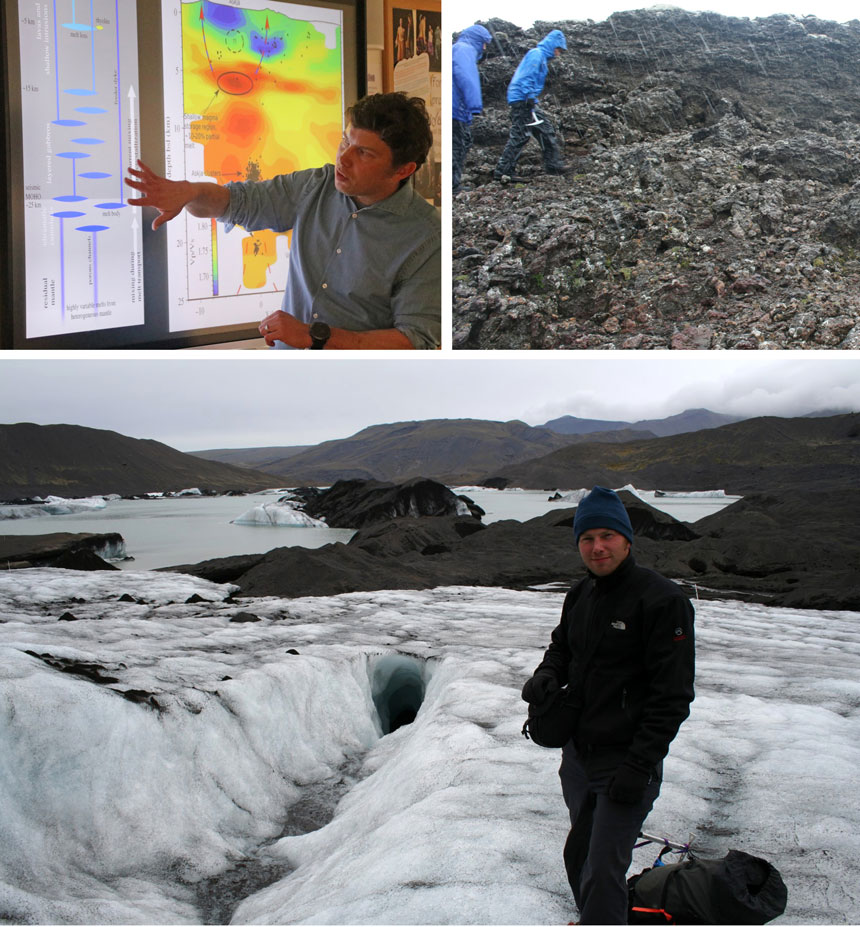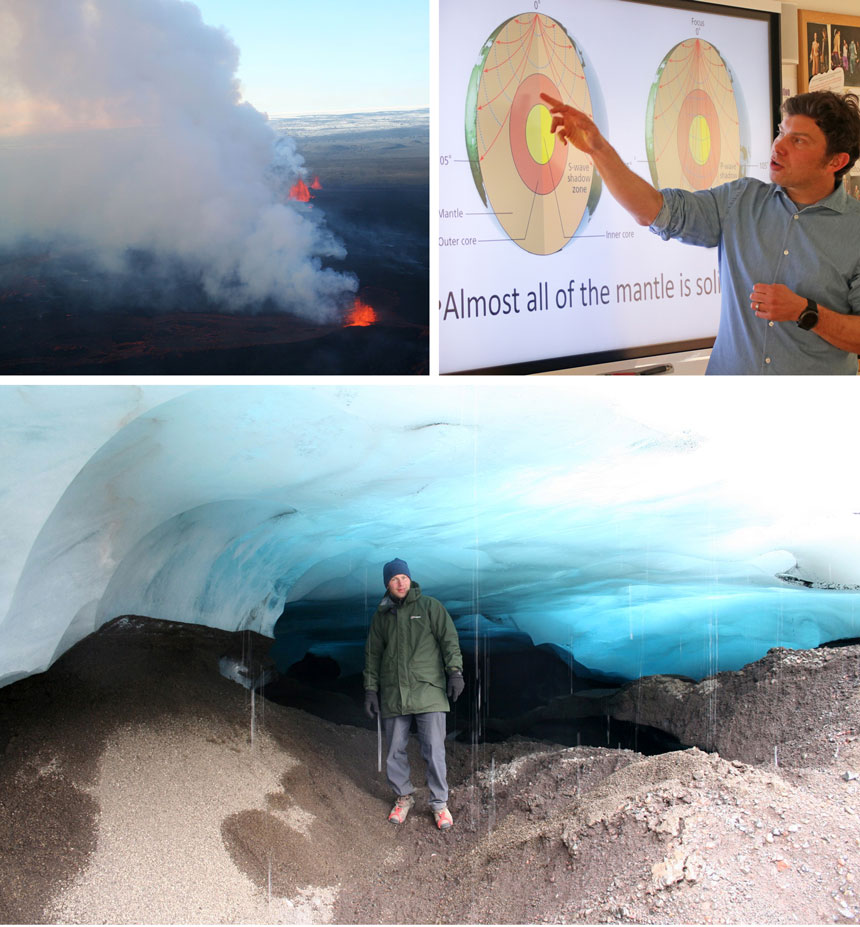Dr John Maclennan, from Cambridge University’s Department of Earth Sciences, gave an informative talk to Forms 4 and 5 pupils on the magmatic processes that influence the life cycles of volcanoes. Dr MacLennan enlightened the children with an overview of the general tectonic processes and the importance of plate movement and convection currents that resulted in different types of plate boundaries. The talk was part of our specifically designed Thursday afternoon Enrichment Programme and ties in with the geography work Form 5 study on volcanoes: plate boundaries, continental drift, tectonic plates and the earth's structure. It also links to the popular Earth Sciences trip to Iceland which is available for Forms 5 and 6 every other year.
Dr Maclennan researches petrology: Igneous, Metamorphic and Volcanic Studies and his work combines robust fieldwork, leading-edge microanalysis and computational techniques to provide a quantitative understanding of magmatic processes. Iceland has provided a natural focus for much of his work and has provided a platform for a global view of magmatism at spreading ridges, ocean islands and large igneous provinces.

The children watched a clip from an eruption of a volcano in Papua New Guinea in which a team of scientists witnessed the eruption of the volcano and the subsequent shock wave that resulted from it. One Form 5 pupil commented that it sounded like a gun had gone off. Dr Maclennan explained the current geological processes occurring in Iceland and showed a recent computerised simulation of a series of recorded earthquakes 5km below the ice which then resulted in a lava flow 40km away. He described the research he has carried out studying magma moving below the Earth’s crust as a means of trying to improve prediction of volcanic hazards.

At the end of the presentation, the children were encouraged to ask and answer questions and one Form 5 pupil answered a question accurately about powerful eruptions and the link to rhyolitic lava. After the talk, Dr Maclennan stated, "The quality and quantity of questions from the children was inspirational - a fast-running lava flow of ideas. It felt like there were some future sparks of volcanology in the drama studio!". Miss Grant commented, "It was an excellent way to generate further interest in the Earth Sciences trip to Iceland in 2021 and to understand the magmatic processes of volcanoes at an in-depth level."
